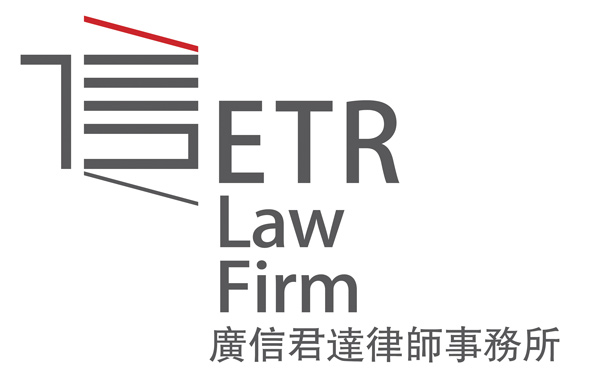Based on the author’s practical experience in handling capital increase dispute cases, and in light of the adjudication opinions in past judicial precedents, whether a capital increase is done in bad faith can be evaluated from the following perspectives:

Associate
ETR Law Firm
(1) Whether the capital increase and the method adopted are necessary for the company’s operations.
The purpose of an increase in a company’s capital/shares is to expand its scale of operations, broaden its business, and provide it a measure of creditworthiness. If the above-mentioned business needs are lacking in the course of a company’s operations and management, then a capital increase is unnecessary.
When determining the method, a company needs to consider its actual circumstances, and respect the views of each of the shareholders in jointly drafting the plan, otherwise such a method can be unreasonable.
In previous cases, some parties could not prove the rationality of the capital increase decision – which is, the capital increase is the only financing method for the company – leading to negative evaluations from the courts.
From these adjudications it can be seen that the majority shareholder that consented to the capital increase is required to adequately account for the reasonableness of the capital increase method. The review was able to initially determine whether the majority shareholder’s exploitation of the rights associated with the capital majority decision rule constrained the will of the minority shareholders, and whether he put forward his own will as the will of the company.
(2) Whether a capital increase infringes shareholders’ rights to subscribe for capital contributions.
If a company’s articles of association do not provide for, and a shareholder does not expressly waive or consent to a capital increase, shareholders enjoy a priority right to subscribe for capital contributions, and capital increases are a shareholder right, not an obligation.
In the actual capital increase resolution, many enterprises often determine that the capital increase will be subscribed by a major shareholder by means of majority voting. If the resolution not to subscribe according to the proportion of capital contribution is not agreed by all shareholders, then the resolution directly violates the provisions of the Company Law, that the new capital shall be subscribed by shareholders according to their proportion of capital contribution.
In a dispute case involving a capital increase handled by the author, the resolution on the capital increase specified that the shareholder with absolute control was to subscribe for the new capital, which resulted in the majority shareholder using the capital majority decision rule to deprive the minority shareholders of their lawful right to subscribe for the new capital.
(3) Whether the new share subscription price or the equity percentage accounted for by the new capital is fair and reasonable.
At present, the law does not compel companies to carry out capital increases or equity transfers based on their net assets. The majority shareholder will usually make the evaluation for a capital increase based on the per share value of the registered capital, or even at a discount, without any consideration for weighing the net assets of the company.
Unless all shareholders contribute to the capital increase in the same proportion as their capital contributions, a contribution to the capital increase made by any one shareholder on a basis other than the per share value of the corresponding net assets of the company will reduce the shareholding percentages of the other shareholders and harm their property rights in the equity.
When the capital of a limited liability company is increased, consideration should be given to balancing the interests of each shareholder, and the amount of the net assets of the company should objectively be valued in determining the value of the equity. The majority shareholder shall not exploit the capital majority decision rule of a shareholders’ meeting to arbitrarily dilute the value of the equity held by the minority shareholders.
In the absence of special provisions on the share price for the capital increase agreed to by the shareholders, the net assets of a company should be valued and audited at the time of the capital increase to determine their fair value.
Remedies for minority shareholders
Where a capital increase in bad faith takes place, it could constitute an abuse of shareholder rights, and directly or indirectly harm the rights and interests of the minority shareholders, damaging company harmony and negatively impacting the company’s operations and management. Under the current legal framework, minority shareholders have the following two remedies available to them:
(1) Institution of a legal action for invalidation or revocation of the capital increase resolution.
If a capital increase resolution deprives other shareholders of their right to subscribe for new capital, violating article 34 of the Company Law, or other laws or administrative regulations, the minority shareholders may institute a legal action with the judicial authority to confirm the invalidity of the resolution. If the articles of association of the company specify the conditions for a capital increase and expressly provide that a capital increase is required to be made on the basis of a valuation of the company’s net assets, but the capital increase resolution violates the above-mentioned provision, the minority shareholders may, in accordance with the second paragraph of article 22 of the Company Law, institute a legal action to revoke the capital increase resolution within 60 days from the date on which the resolution was passed.
(2) Institution of a legal action for the payment of damages.
The second paragraph of article 20 of the Company Law states that the constitutive conditions for instituting a damages dispute are:
(i) abuse by a shareholder of its shareholder rights; or
(ii) abuse by a shareholder of its equity rights, resulting in the company or the shareholders incurring a loss.
The author would argue that as long as the minority shareholders can show that their shareholding percentages were diluted by a capital increase, the same is sufficient for proving that their corresponding property rights have suffered a loss.
As for the specific amount of property loss, the minority shareholders may, after instituting the legal action, apply in accordance with the law for a valuation of the net assets of the company, taking the date of the capital increase resolution as the reference, and the net asset value corresponding to the reduction in their shareholding percentages serving as the amount of their losses.
Wang Zheng is an associate at ETR Law Firm
10 & 29/F, Chow Tai Fook Finance Centre
No.6 Zhujiang Dong Road, Tianhe District
Guangzhou 510623, China
Tel: +86 20 3718 1333
Fax: +86 20 3718 1388
Email: wzlawyer@etrlawfirm.com






















